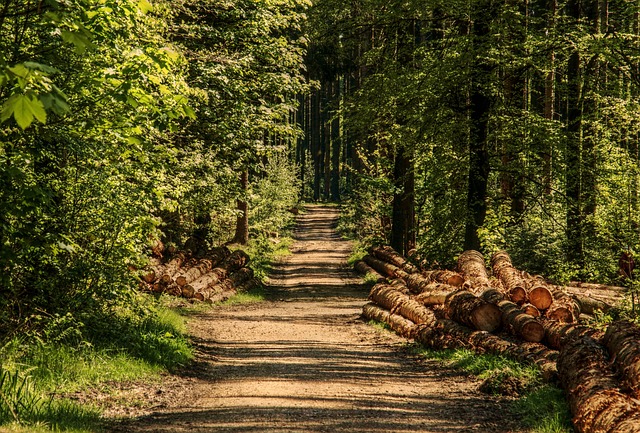MALAYSIA’S timber export contributed RM23.25 billion to the country’s economy as of November last year, despite the drop in demand from Europe according to Malaysian Timber Industry Board’s (MTIB) report.
This marked a continuous growth since 2020 when timber exports were recorded at RM22 billion. It increased by 3% to RM22.74 billion in 2021.
MTIB subsequently announced that it is aiming for timber exports to hit RM28 billion by 2025, which is in line with the National Timber Agricommodity Policy and the National Timber Industry Strategic Plan 2021-2025.
Meanwhile, the domestic sales for timber is targeted to reach RM20 billion in 2025 after recording RM8.14 billion as of November 2022.
To achieve the target, MTIB said that it is now actively promoting the use of wood in the local market via promotional campaigns in the mass media, and participating in and organising exhibitions such as the Wood and Lifestyle Fair.
Chief statistician Datuk Seri Dr Mohd Uzir Mahidin, on the other hand, viewed that the export trend of timber products in Malaysia is volatile. It began to peak in 2006 with a value of RM22.9 billion.
“Japan is the main export destination for Malaysian timber products, contributing 30.1% or RM2.1 billion in 2021,” Mohd Uzir said in Malaysia Trade Statistics Review.
He noted that the export value of furniture products was seen to soar to RM16.6 billion in 2021 despite the uncertain trend.
“The average annual growth rate of this product between 1990 and 2021 was at 7.9%,” he said.
The top five destination countries for the export of wooden furniture include the US, Japan, Singapore, the UK and Australia.

Challenges with EU
The country’s timber industry still has a few obstacles to overcome, mainly with the requirements in certification of the European Union Deforestation Regulation (EUDR) that may limit the export-ing of timber products into multiple markets.
On Dec 6 last year, the EU reached an agreement on a new law to prevent companies from placing commodities — namely palm oil, soya, timber, rubber and cocoa — linked with deforestation and forest degradation into the EU market.
The regulation has called for all relevant companies to abide by mandatory due diligence rules if they place their products on the EU market.
Companies were also required to prove that their products were deforestation-free and present precise geographical information on where the commodities were sourced.
Therefore, the Malaysian government, stakeholders and timber players will need to work together to overcome the certification barriers.
Previously, the local timber industry took almost a decade to achieve the Timber Legality Assurance System (TLAS) — to assure the legality of all timber and timber products exported from Malaysia — according to Sabah Timber Industries Association (STIA).
In light of the EU’s new deforestation regulation, Plantation and Commodities Minister Datuk Seri Fadillah Yusof recently announced that Malaysia may stop exporting palm oil to the EU.
Fadillah said the regulation would additionally burden Malaysian commodities exporters to the EU market, specifically the additional traceability requirements and data that must be provided to end customers based in the EU.
“The EU must commit to genuine engagement with producing countries. We stand ready to enhance further this mutually-beneficial partnership, especially by building on the recent signing of the Malaysia-EU Partnership and Cooperation Agreement (PCA), as well as possible resumption of Malaysia-EU Free Trade Agreement (FTA) negotiations,” he said in a press conference recently.
Fadillah, who is also the deputy prime minister, stressed that Malaysia values the EU as one of its important trading and investment partners. However, the EU’s new regulation could block market access and hurt small traders.
At this juncture, the minister said that Malaysia has complied with all the standards and requirements regarding the environment and sustainability.
“We need to engage with experts from overseas and look at this issue from all angles to counter whatever move that the EU may make.
“The other option we have is just to stop exporting to the EU and focus on other countries,” he said.
Cultivating Timber Sustainably
As the timber industry is one of the main contributors to the Malaysian economy, logging activity can be considered an important activity to cater to the demand.
Despite being one of the world’s largest exporters of timber, Malaysia has retained more than 50% of its total landmass, while maintaining the right balance between conservation and development.
In 2020, Malaysia was awarded a gold medal for achieving the biggest increase in forest area certified by the Programme for the Endorsement of Forest Certification (PEFC) with over 950,000ha of certified forest or an annual increase of over 20%, making it a total of more than 5.2 million ha.
In 2021, the country launched the Malaysian Forestry Policy to reaffirm the importance of certification with special reference to the Malaysian Timber Certification Scheme (MTCS) in promoting sustainable forest management (SFM).
The scheme provides an independent audit of timber product manufacturers or exporters through Chain of Custody (CoC) certification to ascertain that the timber-based products manufactured or exported are sourced from sustainably-managed forests.
“All MTCS-certified timber products are also allowed to carry the PEFC label, which is accepted in many developed countries, most notably in Europe,” according to the MTCS website.
Over the years, the annual export of certified timber and timber products has notably increased with a cumulative total of 2.62 million cu m exported to 72 destinations across the globe, as of July 31, 2021.
“The key objective of forest management in Malaysia has been to ensure continuity of product flow, while conserving our complex ecosystems and maintaining our rich and varied flora and fauna,” it said.
At this juncture, Malaysia’s continued achievements in sustainable agricommodity emphasise that the development of the timber industry can and must go hand-in-hand with the conservation of tropical forests.
Source: The Malaysian Reserve
Source: The Malaysian Reserve
March 29, 2023













